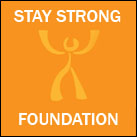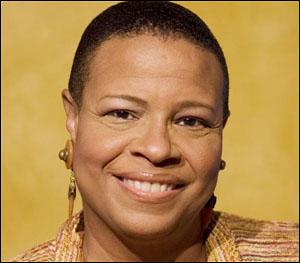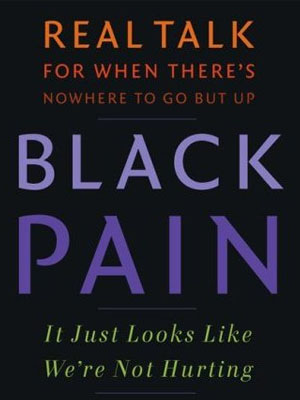Executive Director of The Stay Strong Foundation, Jennifer Jones

The Problem with Being the 'Problem Solver'
This was a reality for Jennifer Jones, 45, who was fired from her position as director of community relations at a New York cooperative development in December 2006. Refusing the company's settlement changed her status to a voluntary resignation, which prevented her from collecting unemployment.
"I was angry and humiliated," says the married mother of two, who was told she had clinical depression. "After eight years, all my efforts and programs I'd created all went down the tubes." Over the course of nearly two years, the formerly two-income family went into a financial tailspin. The couple depleted their savings and took their daughters, one in college, out of private schools. They traded in two cars for one and moved from their Princeton, New Jersey, home to a relatively small apartment in the New York City area to be closer to family. Feelings of disgrace because of the lack of viable employment opportunities and the stress of her family's upheaval took a toll on Jones. She became a virtual recluse, sleeping constantly, overeating, and eventually ceasing most of the functions of daily living, including the care of her younger daughter. Her husband helped pick up the slack.
With no history of mental illness, Jones was convinced the low feelings would recede over time. "I was told to pick myself up and count my blessings," she recalls. "I've always been the go-to problem solver for my family. It was impossible to believe I couldn't help myself." - Black Enterprise
The holiday season is upon us in full force. And, while most thoughts are of happiness, goodwill and Peace on Earth, the holiday season can bring sadness and even depression to some.
Executive Director of The Stay Strong Foundation, Jennifer Jones, offers words of wisdom, an example of a triumph over depression and ultimately a message of hope to those who might be struggling this time of year...
JJ: I did not know that I was clinically depressed. I had no idea. After fifteen years at the same job working for a major corporation in New York City, I was terminated due to politics. I spun out of control.
The first couple of months were okay because I was very angry about it but then things just started going downhill. I didn't understand what was going on with me and neither did my husband or my kids. I went into this blue funk. I didn't care about what I looked like. I didn't want to leave the house. I didn't want to talk on the phone. My husband was like "Jen! What the heck is wrong with you"? He didn't recognize the signs. I didn't recognize the signs. It was just an awful experience. I say that to say that you don't know what circumstances will come your way that will send you into depression. I mean, I am a perfectly healthy middle-aged woman enjoying her life and just like that my life as I knew it was taken away from me and I spun out of control.
DR: Distinguish for me the difference between someone dealing with something terrible that has happened and depression.
JJ: Easily. When something difficult occurs you sit down and think about how to deal with it and what steps to take to meet that next goal. With depression you are not thinking about anything but self-pity. You are thinking that your family will be better off without you... You just have a myriad of crazy irrational thoughts and you don't go about trying to takes steps to get yourself out of the situation. You are just not thinking at all because you just don't give a damn.
DR: Well, I am certainly guilty of having the occasional pity party. I think we all do that but it sounds like you are talking about something different. Was your pity party something that went on for a long time?
JJ: I took my pity party to the next level.
DR: And what's the next level Jennifer.
JJ: The next level was just not caring about anything and wanting to sleep all of the time and not wanting to face anything. And then when you do attempt to face things you put on this big damn charade, what I like to call the mask. You put on this mask and go around your friends and you are fine and then you go home and you cry. You put on the mask and pretend that everything is fine when in actuality nothing is fine.
DR: Why do you think that you didn't?

"HEALING STARTS WITH US" CAMPAIGN
The "Healing Starts With Us" (HSWU) campaign is a mental health awareness effort designed to educate the public -- in particular, people of color -- about deprestion and its impact on the community. HSWU is an outgrowth of the overwhelming response to a book written by Terrie M. Williams entitled, "Black Pain: It Just Looks Like We're Not Hurting."
The campaign's goal is to reduce the frightening number of individuals who are undiagnosed and suffering from depression, and to serve as a community supported network for awareness, dialogue, education and inspiration. Specific goals include:
- To generate additional support from psychiatrists, psychologists and other mental health professionals by donating a number of hours to the HSWU Wellness Program. We already have over 300 hours donated.
- To increase the number of individuals who seek treatment for depression from 16% to 25% over the next three years.
- To have one million people -- particularly people of color -- take an on-line or in-person Mental Wellness Assessment test over the next three years.
- To host an on-line lifestyle community that serves as the destination of choice for individuals seeking information about depression.
- To sustain the number of young minorities interested in entering the mental health care profession.
As a mental health practitioner and an individual who manages depression, Terrie shares, first-hand, that the affects of depression are REAL. Depression not only destabilizes the life of the individual experiencing it, but also the lives of those they care about. If left unnamed and untreated, it robs you of your quality of life and destroys communities in its wake.
The HSWU campaign's primary mission is to get people to start talking and educate them on what depression looks, sounds and feels like and, most importantly, encourage them not to remain silent but seek professional help, if needed.
Click here to learn more about the campaign.
JJ: I really don't know. That is something that I am working through with my therapist. My therapist wanted to put me on medication but I did not want to do that. I have issues with medication.
DR: Can you talk to me about that?
JJ: One of my first jobs out of college was a mental health clinic in downtown Brooklyn and I didn't like some of the things that I saw in terms of the care that African Americans were given in regarding medication. They seemed to put everyone on Lithium and they all became like zombies. So my decision not to take medicine came from that. I decided to use talk therapy and that has been helping. I express myself. I cry like a baby sometimes. Weeping is a good thing. Whenever I leave my therapists office I feel like a million bucks.
DR: What would you say to someone, Jennifer, who thinks they might be depressed, although I imagine that no one is sitting around thinking that they are depressed?
JJ: There are signs. You have to know the signs of depression, like not wanting to get up or get dressed...There is so much information out there to help people identify the signs.
I am the Executive Director of Terrie Williams organization The Stay Strong Foundation. If you go to our website, http://www.staystrongfoundation.org, we have all kinds of information and links that will lead to great information or referrals, information that will get people help.
As we see it, depression has been stigmatized. It is often seen as a sign of weakness...
DR: Do you think that that stigma is unique to the African American community specifically?
JJ: Yes. Yes, I do.
African Americans are a strong people. We are fighters and so to break down is seen as a sign of weakness. As a result, we keep things bottled up inside.
DR: So is it almost like it is a luxury for African Americans to be depressed. With all of the other issues that historically African Americans have had to deal with, depression is "at the bottom of the list, honey?"
JJ: That is why we are expected to just shake it off...
DR: And it stands to reason that the more misunderstanding and lack of understanding that there is out there or the more lack of appreciation for what someone is going through, the more difficult it is to come out of depression.
JJ: My niece is thirty years old and married. She got pregnant and the baby was born early and only 1 ½ pounds. The baby died and two weeks later her father passed away. Three weeks after that her grandmother passed away. That kid was going to commit suicide! You just don't know what will trigger you!
DR: Is that depression or would that be considered trauma?
JJ: There are all kids of things that can lead to depression. My oldest daughter is twenty-five years old and was diagnosed with diabetes. She goes through major depression. I can recognize the signs in her but could not recognize the signs in myself...
DR: In your case then, if someone would have offered you the job of a lifetime on that same day that you were in a very dark place, what difference would that have made?
JJ: I don't think at that point it would have made any difference. I was in a black hole.
I have to say that if it wasn't for Terrie Williams, I just don't know. ...On one of my dark days I was home and watching something on CNBC and Terrie came on and started talking about her book Black Pain. She directed people to her website. I was intrigued by the book and so I want to her website, read some clips and shot her an email. She shot me an answer back in about ten minutes. We went back and fourth for a couple of hours.... Eventually we met for dinner and we have been closer than close ever since. Terrie is just amazing...
Everybody needs a good support system.
DR: What do you want people to know about depression that may not be so obvious?
JJ: If something difficult happens and you catch yourself not processing or handling things as you normally would, reach out for help. Do a little research or homework. Do not sit in silence. Too many of us die in silence. It's time to break the cycle.
DR: I am just putting myself in the place of someone who may not be as resourceful as you were. Fundamentally I am understanding that you are telling people at the to talk to someone.
JJ: Talk to someone who will listen. It could be your pastor or a friend. Just talk to someone....
Which is sometimes easier said than done and I know it's important to do. It's that one conversation, however, which could be the next conversation, that can provide the light.
DR: And don't give up?
JJ: Don't give up! Don't give up!
DR: A hundred years from now what do you want to be remembered for?
JJ: I want to be remembered for helping to transform lives.
Thanks Jennifer.
BLACK PAIN: It Just Looks Like We're Not Hurting

From Publisher's Weekly:
Black Power masks Black Pain, says Williams, a social worker and founder of a successful public relations firm. Back when black was beautiful, we felt comfortable in our dark skin and 'nappy' hair. Decades later, that sense of pride has morphed into bling that hides the pain of poverty and racism. The result has been depression expressed through violence, addiction, suicide as well as obesity and hypertension. The stoicism blacks are taught in order to not appear weak in the eyes of other black people only leads to denial and isolation. Williams argues persuasively that blacks are not alone. She begins with her own tribulations with depression. From there, she examines how depression is expressed by black men, women and children, and shares the stories of scores of others: rich, poor, successful, incarcerated. This liberal insertion of case reports coupled with a plethora of block quotes can bog down the text. However, Williams is dedicated to convincing her fellow African-Americans that assistance is readily available, whether through counseling, medicine or self-help: [T]here is no need for you to suffer alone or in silence. Help is out there.
"Black Pain is just the conversation starter that we need to begin tackling the taboo topic of depression. Out of the discussion comes the healing." - Tavis Smiley, Author, Television Personality and Radio Host
"Black Pain is an immensely readable and down-to-earth book. It will motivate black people who suffer with depression in silence to seek help. This book shines a bright light on the darkness of despair" - Alvin F. Poussaint, MD, Professor of Psychiatry, Harvard Medical School
"Black Pain shines a spotlight on the issue, getting the message out that we must identify, understand, and seek the help we need to heal." - Danny Glover, Actor/Activist
"It boldly confronts the reality of our pain head on, flowing like hot lyrics over the perfect beat." - Sean "Diddy" Combs
"Black Pain shows us that it is time that we all talk about our depression and fight with the same vigor that we fight to achieve racial justice." - Charles Ogletree
"Black Pain shows us how to recognize that depression that may be hidden away and deal with it. It pushes us to give a voice to the pain without passing it on to others." - Patti LaBelle
"Terrie dares to bring out what so many have not had the courage to confront, having learned that you can never heal until you expose what hurts you. Black Pain is an opportunity to reach your breakthrough moment." - Rev. Al Sharpton
"The racism, the struggle, the feelings of hopelessness-it hurts like hell. Black Pain shows us why we are dying in the streets." - Jamie Hector, actor, The Wire
"Black Pain takes a candid and in-depth look at depression in black America. The book provides hope to those who battle with the disease and offers an understanding for the friends and loved ones who care for them. I highly recommend this book." - Bishop T.D. Jakes, Senior Pastor, The Potter's House
Click here to buy BLACK PAIN today.
For more information about BLACK PAIN or Terrie M. Williams, visit http://blackpain.org or email tmwms@terriewilliams.com.
